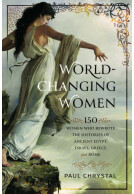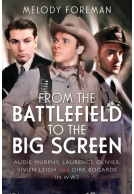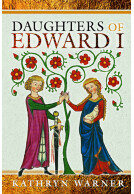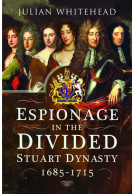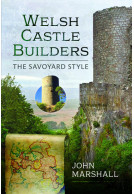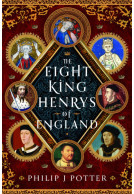Factory Girls (Hardback)
The Working Lives of Women and Children
Imprint: Pen & Sword History
Pages: 272
Illustrations: 32 black and white illustrations
ISBN: 9781399011921
Published: 21st September 2022
(click here for international delivery rates)
Need a currency converter? Check XE.com for live rates
| Other formats available - Buy the Hardback and get the eBook for £1.99! | Price |
|---|---|
| Factory Girls eBook (27.1 MB) Add to Basket | £6.99 |
Ever since there have been factories, women and children have, more often than not, worked in those factories. What is perhaps less well known is that women also worked underground in coal mines and overground scaling the inside of chimneys. Young children were also put to work in factories and coalmines; they were deployed inside chimneys, often half-starved so that they could shin up ever narrower flues.
This book charts the unhappy but aspirational story of women and children at work through the Industrial Revolution to 1914. Without women there would have been no pre-industrial cottage industries, without women the Industrial Revolution would not have been nearly as industrial and nowhere near as revolutionary.
Many women, and children, were obliged to take up work in the mills and factories – long hours, dangerous, often toxic conditions, monotony, bullying, abuse and miserly pay were the usual hallmarks of a day’s work – before they headed homeward to their other job: keeping home and family together.
This long overdue and much-needed book also covers the social reformers, the role of feminism and activism and the various Factory Acts and trade unionism.
We examine how women and children suffered chronic occupational diseases and disabling industrial injuries – life changing and life shortening – and often a one-way ticket to the workhouse. The book concludes with a survey of the art, literature and the music which formed the soundtrack for the factory girl and the climbing boys.
Article: WORKERS ENDURED LONG, GRUELLING, UNSAFE SHIFTS
Telegraph and Argus (Bradford)
Factory Girls is a book with lots of information packed into it. By its very nature it’s more of a broad survey than in –depth analysis of specific subjects. But Paul Chrystal provides a useful guide through the years concerned. And he does it in a way that is aimed at a general readership rather than specialists.
Penniless Press
Read the Full Review Here
Rating: 5 out of 5 stars
NetGalley, Monica Mac
Oh my goodness, but this book made for grim reading!!! How enough people survived the industrial revolution, in particular, long enough to make the next generation, amazes me. Sheer numbers of babies born, I suspect.
Don't get me wrong, this was a meticulously researched book and there were many facts here that I had no idea about and I now consider myself a little better educated but wow, my heart broke for those poor girls and boys (and women too) who suffered so badly.
What happens to a society who treat their members as disposable? Well, read this book and find out. In the days before we had any kind of income support from the government, people starved if they didn't work, children included. No birth control, obviously, so lots of mouths to feed and so it was every member of the family to work. The ages of the children who started working was distressing - my granddaughter is 4 years old and the thought of her working in a cotton mill makes me shudder. Of course, the Victorians were very prudish and so women who were forced to become prostitutes in order to feed themselves and their children (as women were so very badly paid and their wages were set at a fraction of the mens, even if they were the sole breadwinner) were looked down upon and so it continued. Children were bought and sold. White slavery, indeed.
When I read some of the chapters, it struck me that the events described herein are not all that long ago, which is kind of scary. My own grandmothers were only 12 years old when they left school for good, one of them went into "service" until she got married. She was certainly a very hardworking woman all of her life and passed away at the age of 92, having only obtained a fridge and a washing machine when she was already into her 70's. Until then, she walked to the market every, single, day to buy fresh food.
So happy that we are living in a day and age where we have Unions and legislation to protect us and enough money (most of the time) to get our basic needs met. Although, in many parts of the world, the kinds of conditions that this book talks about during the Industrial Revolution are well and truly part of their present.....
Anyway, this book was very much worth reading, although it is not an easy read by any means.
I would say this book is fantastic and a must for anyone who wants to learn more about women or children in the workplace. I’m really looking forward to the second book in this pairing, and hope I get a chance to review it.
The History Fella
Read the Full Review Here
If there was ever a book I needed to read the moment I saw it, it was this one. I found this to be exceptionally well-researched... It 100% gave me much more insight into my female ancestors, their lives often glanced over, their contributions minimised. This is yet another book I plan on purchasing to keep on hand as reference and to refresh my memory.
NetGalley, Anna Laird
This is an informative and well researched look into the rise of working women and children in the 17th-20th centuries from farmer wives to independent working women and the end of child labor.
NetGalley, Caroline Palmer
Rating: 5 out of 5 stars
NetGalley, Wendy M Rhodes
A well-researched and intelligent book, full of historical facts about women working in bygone times. Highly recommended.
This is such a well-researched, well-crafted book about the, quite frankly, hecking horrible conditions of working of women and children in the industrial, and pre-industrial era.
NetGalley, Ea B
Rating: 5 out of 5 stars
NetGalley, Catherine Hankins
This was a very insightful book of woman and child labor through history. Would be useful for a high school history class, maybe even college. I'm of an age that I can recall being told I wouldn't be paid as much as a man doing my job, because they had a family to support (really, women with families to care for, or various reasons, didn't count?). We still, as a society, have long way to go for toward equal pay for equal work. But Mr. Chrystal offers much in the way of how both men and women worked to not only improve working conditions and pay for all, but also how children were removed from inhumane conditions. Kudos on a well researched book!
Rating: 5 out of 5 stars
NetGalley, AnneMarie Brear
An excellent book full of great details and research which I found fascinating. There should be more books like this to teach the future generations of what women went through in the past.
What a book! I was fascinated from start to finish - it really was interesting and insightful. This is a really great book for anyone interested in history and I'd definitely recommend it.
NetGalley, Naomi Clarke
Rating: 5 out of 5 stars
NetGalley, Anna Maria Giacomasso
We should lean more about life of working women in the past century. This well researched and informative book did an excellent job in making learn more.
Highly recommended.
I loved learning more about factory women and girls. As well as how horrible the conditions were for the workers. As it wasn't something that was talked about in any of my history classes in high school or college.
NetGalley, Carissa Miller
Rating: 5 out of 5 stars
NetGalley, Karen Bull
Wonderful book.
Historic honouring the amazing women who worked through terrible conditions just because they needed to eat etc.
This book shows how lucky our generation is.
Rating: 5 out of 5 stars
NetGalley, Telicia Michaud
Factory Girls by Paul Chrystal is a thoroughly researched book about factory life in England during the 17 and 1800s. Children and women were not treated equally back then even more so than nowadays. Mr. Chrystal examines and reveals to the reader what conditions were like inside the places of employment, impacts on the entire family structure, and what home life was comprised of. Statistics are readily available as Paul discusses disease, fatalities, and percentages of women and children workers for different occupations amongst other facts of the jobs discussed.
One part I found fascinating, although grim, was when Mr. Chrystal spoke of the young chimney sweeps. I had no idea children were sent up into 9x9 chimneys to sweep them clean, and the saying “light a fire under” someone came from the this time period and what master chimney sweeps would sometimes do to hurry their young apprentices up to complete a job. It amazes me still that someone would allow their 4-year-old to 12=year-old child to participate in this dangerous occupation.
I was impressed with the vastness of knowledge acquired by reading this non=fiction piece of writing. Mr. Chrystal not only discusses the types of jobs women and children held during this time period, but also included information on laws that were developed during this time period, how the professions were to live in infamy by listed writers and artists, labor unionizing attempts, and social responses to workers and their plights.
I feel well educated after reading Factory Girls, and look forward to searching for other topics of interest Paul Chrystal has already written about or will write about in the future. Although I teach elementary students and assigning this book as an assignment is unrealistic, I plan on integrating some of the knowledge I have gained by reading this book into my curriculum, as the small city I teach in is a former mill town.
This book was very informative. Well researched and well written. I loved seeing the progression from then to now.
NetGalley, Vikki Lynn Sorensen
Wow. I had not yet read a book written by Paul Chrystal and did not know what to expect from Factory Girls. What I found was a detailed looked at the working lives of women and children throughout history that was well-written and included a multitude of primary sources. This book doesn't shy away from the hard truths of the working lives of those living in England and goes into great detail about the job, it's impact on the health and well being of the person and the family unit overall. I was blown away by the research and empathy included in each and every page. As a historian I loved the detailed footnotes and images included at the end of the book as well as the rich and varied primary sources throughout the book.
NetGalley, Nicole Woulfe
Informative, centred on women's and children's experiences, and detailed but concise research analyses. When learning about the Industrial Revolution, the voices of women often go unheard, but this book puts their stories/experiences/hardships right in front of us. This book delves into the lived realities of what it meant to be in the informal and formal sectors of the economy as a woman.
NetGalley, Natalie Chiasson
I recommend this book to anyone who wants to learn more about the Industrial Revolution, women and the economy in the early twentieth century.
Rating: 5 out of 5 stars
NetGalley, Janalyn Prude
“Factory girls" by Paul Crystal the history goes back so far we even learn why “traditional“ women’s work was was considered to be in the home. It’s packed full of the different work women did throughout early history and even into World War II. In the back of the book they have photos actually showing the different women in the different roles. It talks about how women’s work has changed throughout the years and how in someways it stayed the same. It explains how modern inventions affected the work women did in the many different opportunities it gave them. I truly enjoyed this book and highly recommend it. I love history in this book totally entertain me I think it was well researched and with the personal stories and poems the author put in the book also made it very entertaining.
Rating: 5 out of 5 stars
NetGalley, Rebecca Corcoran
After reading what must be dozens of fictional books on this subject I had to give this non fiction historical book a try. And wow! well worth it!
This book is a really detailed and informative read about the significant part women and minors of both sexes played in the Industrial Revolution. How, indeed the so called revolution would not have come to be without both women and children playing a part.
Book outlines how both groups were usually on the bottom of the ladder in regard to work, pay, safety etc and how a ‘woman’s work was never done’ with them then having no to go home to look after there families.
This is not a happy tale but a necessary one to tell of the lives and fates of the factory girls who helped shape the future of many industries.
Well researched and well written.
About Paul Chrystal
Paul Chrystal has been history advisor to York visitor attractions, writing features for national newspapers, and broadcasting on BBC local radio, on Radio 4’s PM programme and on the BBC World Service.
He is contributor to a number of history and archaeology magazines and writes features for national newspapers. He is author of the best-selling A History of Britain in 100 Objects (2022). His books have been translated into Chinese and Japanese.
He is author of Factory Girls: The Working Lives of Women and Children published by Pen & Sword in 2022.









